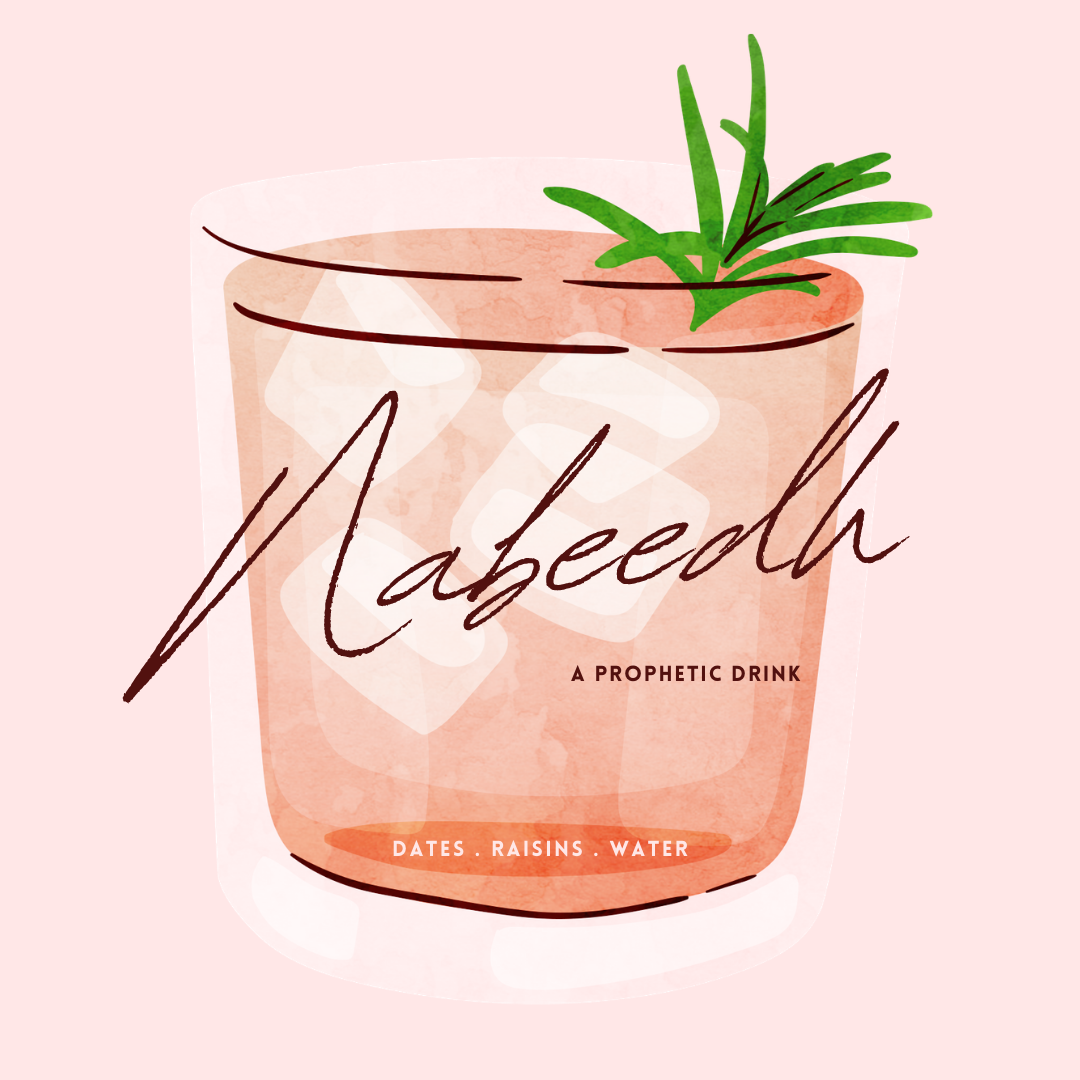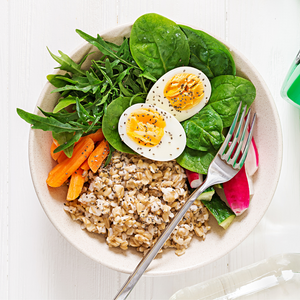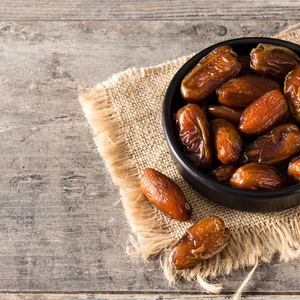Summer is here, Ramadhan is here! A hot summer brings with it the possibility of mild dehydration which may cause headaches, tiredness and difficulty concentrating for most people who fast during Ramadan.
Thanks to the high temperature and humidity, your body loses water in various ways. Through the skin in the form of perspiration, through the kidney as urine and stools, and through the lungs as you exhale water vapor. Along with water, essential salts and minerals are also lost. So, it is important to replenish the lost nutrients as soon as possible.
🥤Are you a soda drinker?

The trouble makers are the sugary beverages which include energy drinks and soda. Now although these offer hydration they also add to hefty doses of unnecessary calories. Let's get to know what exactly these are.
ENERGY DRINKS
These are drinks that claim to boost your energy levels and they contain high levels of stimulants like caffeine as well as sugar and often supplements such as vitamins or carnitine which are capable of enhancing mental alertness and physical performance. These are different from sports drinks which are used to replace water and electrolytes during or after physical activity. A few examples of energy drinks are Red Bull, Monster, Rockstar, etc.
SODA DRINKS
If you are downing these on a regular basis then know that you are putting your body at stake. These drinks are nonalcoholic, flavored, and carbonated beverages usually commercially prepared and sold in bottles and cans. Soda and soft drinks are the same things and these drinks normally contain natural or artificial sweetening agents, edible acids, natural or artificial flavors, and sometimes juice.
🍾 Let’s Pop The Soda History
So how did the term soft drink emerge? There’s an interesting story to it. These soft drinks were originated to distinguish flavored drinks from hard liquor or distilled spirits (alcoholic beverages). Soft drinks were used as a substitute to change the hard-drinking habits of early Americans. And they were first marketed in the 17th century which contained a mixture of just water and lemon juice mixed with honey to sweeten it after which the sale began where vendors carried tanks on their backs from which they dispensed cups of lemonade.
Now have you ever wondered what’s the bubbly stuff in here? Yes! It’s the carbon dioxide. The advent of Carbonated beverages was developed by Europeans in the 17th century. Here carbon dioxide gas was introduced to give the beverage its sparkle and tangy taste. This is usually supplied to the manufacturer of soft drinks in either solid or liquid form.
🫀 Health Effects
If we know the purpose of energy drinks is to boost our energy levels and increase our mental and physical performance, then what’s the harm? The harm starts when there is regular consumption.
The regular consumption of these drinks has been associated with multiple chronic health conditions, cardiovascular effects and blood pressure (Energy Drinks Encyclopedia 2019). And of course, it’s because of largely added ingredients like sugar into them. Some of them contain 40 grams of sugar or more which exceeds the recommended daily sugar intake for adults. You must know that this increases the risk of metabolic syndrome and type 2 diabetes.
Similarly, long-term consumption of these soft drinks is linked to weight gain, obesity, and tooth decay.
🍹 Come Out Of Your FANTA-SY And Try Some Amazing Alternatives!
In addition to dates and water upon breaking your fast, it is important to stay well hydrated throughout the day so you can stay fresh and do your Ibadah well. Examples of refreshing drinks which require no added sugars are Infused water, Coconut water, Sparkling water, and smoothies.
Infused Water
Infused water is like a natural detox water, made by adding ingredients to enhance its nutritional value. You can make this easily by simply infusing fresh fruit , vegetables, or herbs.
Water does not contain any protein, carbohydrates, sugar, fibre or starches. It is fat-free. But what it does contain are minerals such as calcium, magnesium, fluoride, iron, copper and selenium which are essential for your body.
Benefits
There are many health benefits of infused water including appetite control, hydration, good digestive system, immune defense, heartburn prevention, blood sugar regulation, and weight management. It soothes headaches and is also an excellent breath freshener. Well isn’t this amazing?! How water being so simple, with a few added natural ingredients, can boost your health is really amazing, isn't it?
Things that can be incorporated into water
- Dates
- Fruits
- Seeds
- Herbs
1. Dates infused Water (Nabeedh)
Preparation Time: (5 mins)

Dates water is nothing but soaking dates in water due to which its sweetness, vitamins, and minerals are released. This is a prophetic drink and it has many health benefits like lowering your cholesterol level, blood sugar level and is good for pregnant women too. Also, this drink is like an alkalizing tonic because it is soaked for long hours and it balances the acidity in the stomach which also seems to be one of the common complaints during Ramadan because of the sudden change in mealtimes.
It was narrated that Abu Sa‘eed al-Khudri (may Allah be pleased with him) said: The Messenger of Allah (blessings and peace of Allah be upon him) said:
“Whoever among you drinks nabeedh, let him drink it made from raisins on their own, or dried dates on their own, or unripe dates on their own.” Narrated by Muslim (1987).
How To Prepare
- Ajwa dates are considered best for making this energetic drink. (you can use dates of your choice, and also add raisins to it). Use 12 dates and soak in 1 litre water.
- Cover the utensil and soak for 10 hours (or overnight, longer the soak duration, the better).
Note: This nabeedh is prohibited if it becomes strong and turns into khamr (wine, intoxicant). But before it becomes strong, drinking it is permissible.
2. Fruit Infused Water
Preparation Time: (5 mins)
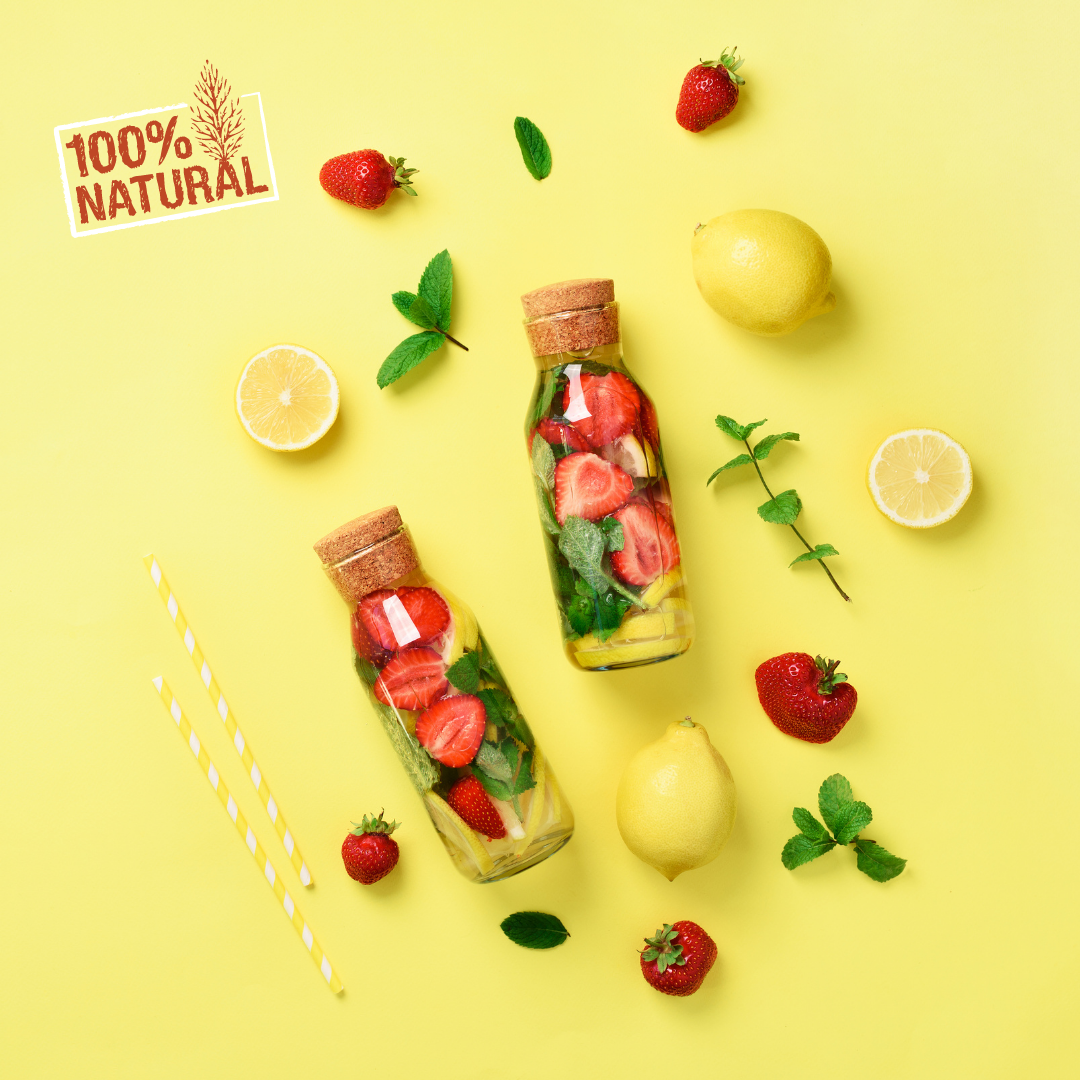
Drinking plain water especially if you have to drink a lot during Ramadan can be quite boring and difficult too. Adding some fruits to give it flavor can make the task easier. This is refreshing, easy to prepare, and packed with vitamins, minerals, phytonutrients, and antioxidants, an amazing substitute for soda or other artificial sweets drinks.
How to Prepare
- Place some sliced fruits and a few mint leaves in a glass jar. (The fruits can be of your choice )
- Pour water into the jar and refrigerate for at least 2 to 5 hours if not overnight (the longer the more flavourful)
- Drink it
A few handy tips
- You can also add cinnamon sticks, fresh herbs or crushed fennel seeds, or jeera seeds to enhance its flavor and also nutritional value.
- Also it’s important that the jar is sealed or the water is in an airtight container in the fridge to maintain the flavor.
- The fruit-infused water’s leftover fruit can be added to your oatmeal or smoothies.
3. Fruit Infused Tea
Preparation Time: (12 mins)

Have you ever heard of fruit-infused tea? It’s simply a few slices of your favorite fruit-infused into your regular tea. You can either drink it hot or pour it over ice it’s all up to you.
How To Prepare
- Add a tea bag and half a cup of fruit pieces into a jar.
- Next add boiling water and let it brew for 3minutes
- Remove the tea bag cover the lid and let the fruits steep for another 9-10minutes. 4. Strain and enjoy hot tea or over ice.
4. Seeds Infused Water
Preparation Time: (2 mins)
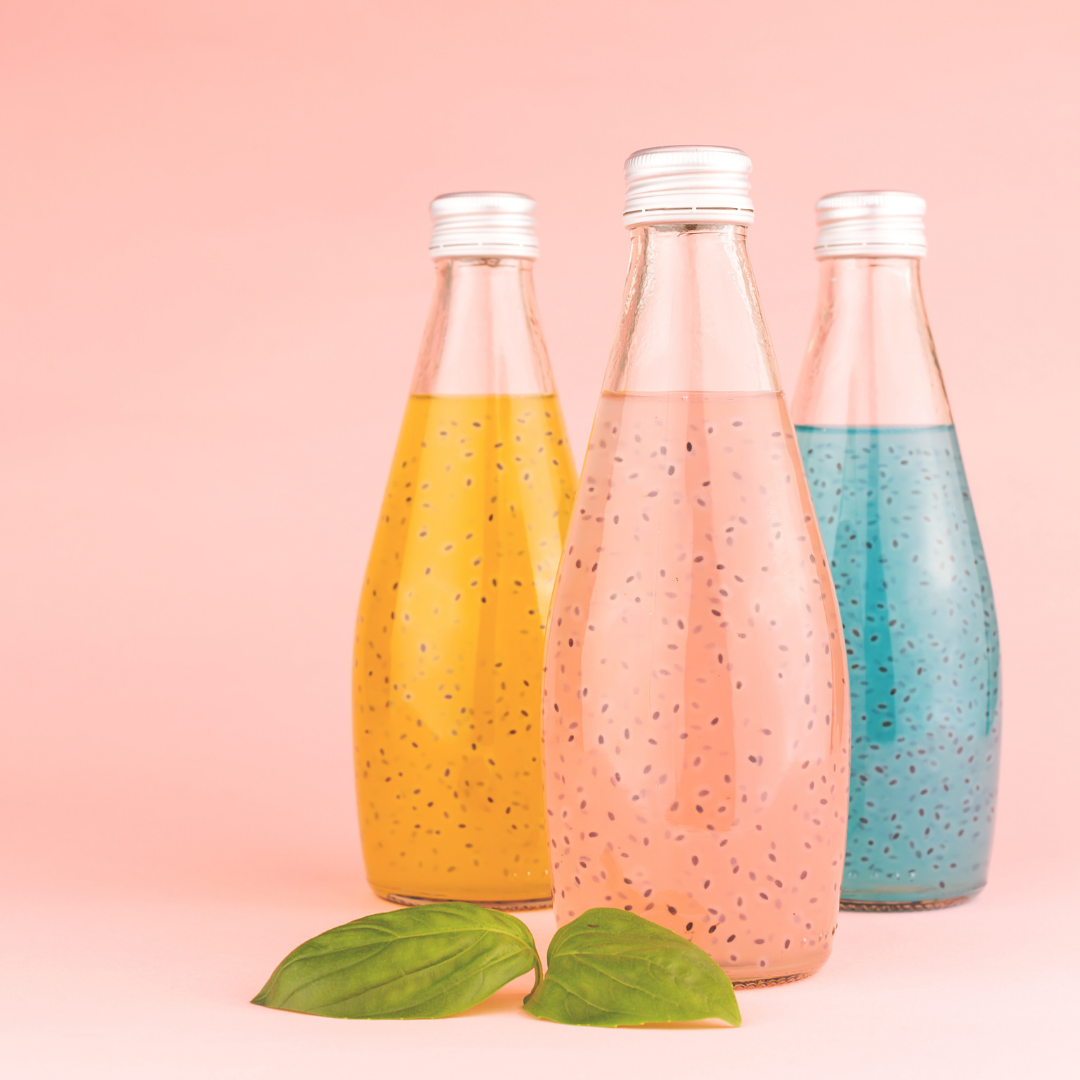
A. Chia Seeds
Chia seeds are high in calcium, protein, manganese, magnesium, and fiber. They’re also packed with antioxidants, keep you hydrated, and enhances your metabolism.
How To Prepare
- Add a tablespoon of chia seeds into half a liter of water
- Leave for 15 minutes until the water turns into a bell-like consistency 3. You can add mint leaves and honey too for flavor.
B. Basil Seeds (or Sabza/Sabzi seeds)
These seeds are a powerhouse of minerals, packed with fiber, low in calories, support your gut health, aids in weight loss, help you feel full, aids in blood sugar control, improve cholesterol. Also, these seeds are good for your hair and skin.
How To Prepare
- Soak 2 tsp of Sabja seeds in a cup of warm water for 15minutes
- Not just water you can add these to milk, coconut water, smoothies.
C. Carom Seeds (or Ajwain)
These seeds cure pesky cough and cold, relieves acidity, reduces menstrual cramps, and aids in weight loss.
- Boil a teaspoon of ajwain in water and drink it every day.
D. Fenugreek Seeds (or Methi seeds)
These seeds are loaded with health benefitting properties. It’s good for your liver, kidneys, regulates blood sugar levels and metabolism. Also, it’s excellent for lactating mothers aiding in milk production.
How to use
- A teaspoon of seeds soaked in a cup of water. (A tsp is sufficient as they are hot)
- Can also warm the water before having an empty stomach.
Note: people with intestinal ulcers must skip consuming this. Also, excessive consumption may cause skin dryness.
5. Herbs Infused Water
Preparation Time: (5 mins)
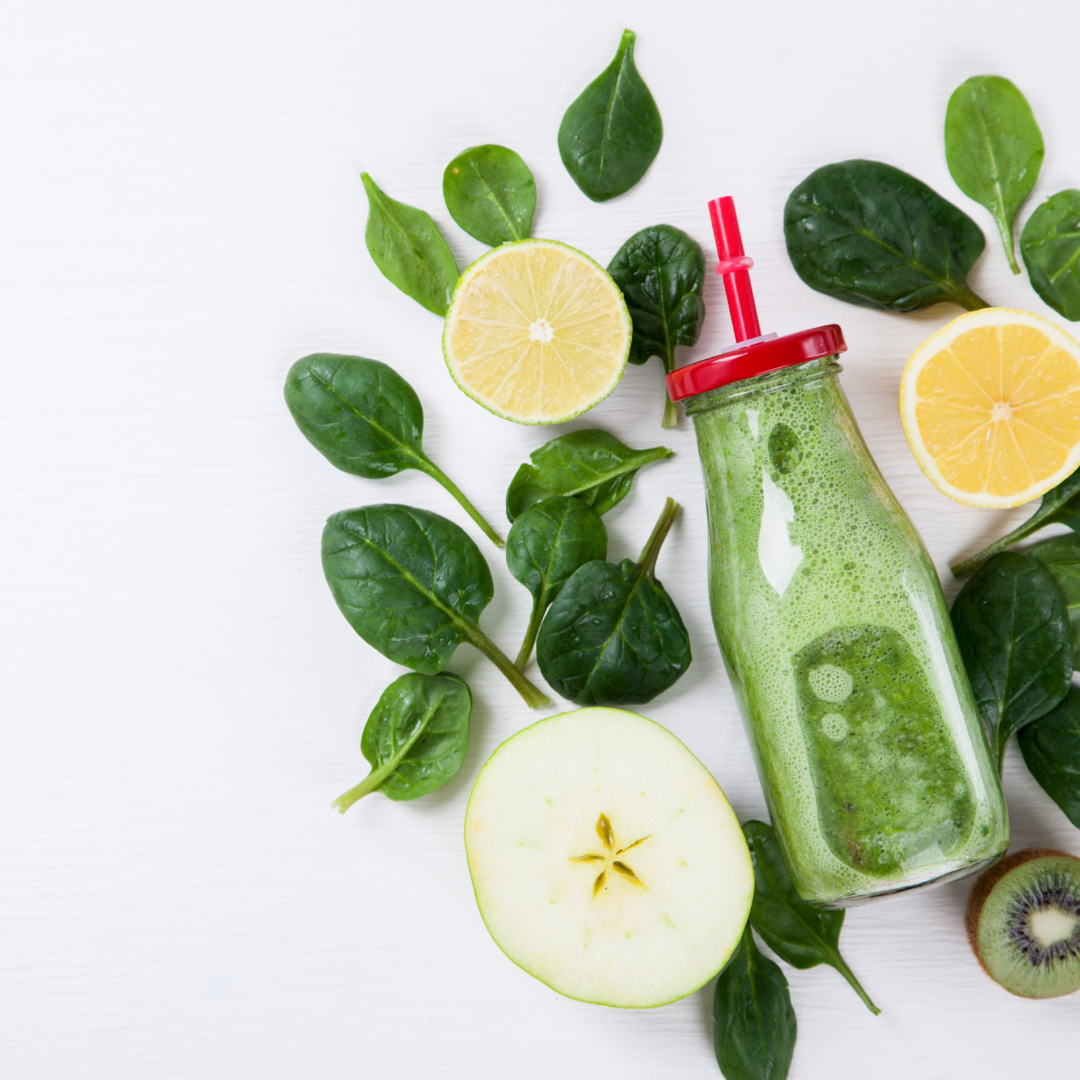
Herbs have been used since ancient times for their medicinal properties. They add a burst of flavors and fragrances to your food, also allowing you to cut on salt without sacrificing taste. And they are the powerhouse of antioxidants and anti-inflammatory effects. Few examples include Mint leaves, Tulsi, thyme, sweet basil, and dill leaves.
Rayhan (Basil Leaves) Mention In The Quran And Sunnah
Allah the Exalted has mentioned the blessings of the sweet-smelling plants ~ RAYHAN in Surah Rahman and Surah Waqiyah.
Narrated from Abu Hurairah that the prophet (peace be upon him) said: “Whoever is offered Rayhan, let him not reject it, for it is from Paradise.” [Muslim 2253]
Ibn Qayyim said,
“RAYHAN refers to every plant with a pleasant scent. The people of Magrib or Arabs give this name Myrtle as for the people of Iraq and Syria they give this name to sweet basil.” [The Prophetic Medicine by Ibn Qayyim]
Ibn Qayyim quotes numerous benefits of sweet basil
• Inhaling these dispel headaches and brings sleep
• Can stop bilious diarrhea
• Calms stomach ache, expels gas, cleanses the intestine
• Strengthens the heart
• Beneficial in treating nervous exhaustion, insomnia, period pains
For a mixed herb-infused water
- Add 3 basil leaves into a glass jar
- 2 sprigs dill
- 1 sprig of thyme and mint leaves
- Add ginger and honey
- Infuse this for 6 hours or more in the fridge and enjoy. (You can also fill this with iced tea or sparkling water with a twist of lemon)
Healthy Infused Water Recipes

Detox - Anti Inflammatory
- Beet root + apple + carrot + ginger
- Ginger + cucumber + lemon + mint leaves + honey/jaggery(optional)
- Pineapple + pomegranate + lemon
Weight And Sugar Control
- Ginger + cucumber + lemon + chia seeds + honey/jaggery (optional)
- Green tea + ginger + lemon + basil leaves
Lower Blood Pressure
- Oranges + kiwi + basil leaves
- Pomegranate + orange/ lemon + ginger Chia seeds + blueberries + spinach
Lower Cholesterol Level
- Pomegranate + lemon+ ginger
- Coriander seeds infused water (overnight)
Metabolism Booster
- Green tea + Cinnamon + strawberry + lemon + mint
References
Basil Seeds:
- Mediratta PK, Sharma KK, Singh S. Evaluation of immunomodulatory potential of Ocimum sanctum seed oil and its possible mechanism of action. J Ethnopharmacol. 2002 Apr; 80(l):15-20.
- Opalchenova G, Obreshkova D. Comparative studies on the activity of basil - an essential oil from Ocimum basilicum L.- against multidrug resistant clinical isolates of the genera Staphylococcus, Enterocuccus and Pseudomonas by using different test methods. J Microbiol Methods. 2003 Jul;54(1):105-110.
- Tohti I, Tursun M, Umar A, Turdi S, Imin H, Moore N. Aqueous extracts of Ocimum basilicum L. (sweet basil) decrease platelet aggregation induced by ADP and thrombin in vitro and rats arterio-venous shunt thrombosis in vivo. Thromb Res. 2006 Feb 7; 118(6):733-739.
- Read more on Myrtle and Basil http://www.healthymuslim.com/articles/znpje-ibn-al-qayyim-healing-through-the-sweet-scented-plants-myrtle-and-basil.cfm
Ayesha Baig is a Nutritionist at Arriqaaq Health who has completed her Masters in Food and Nutrition. Her focus is on creating awareness about healthy eating and lifestyle changes along with personalised meal plans to help the community.
Like our content? Subscribe Peas!

